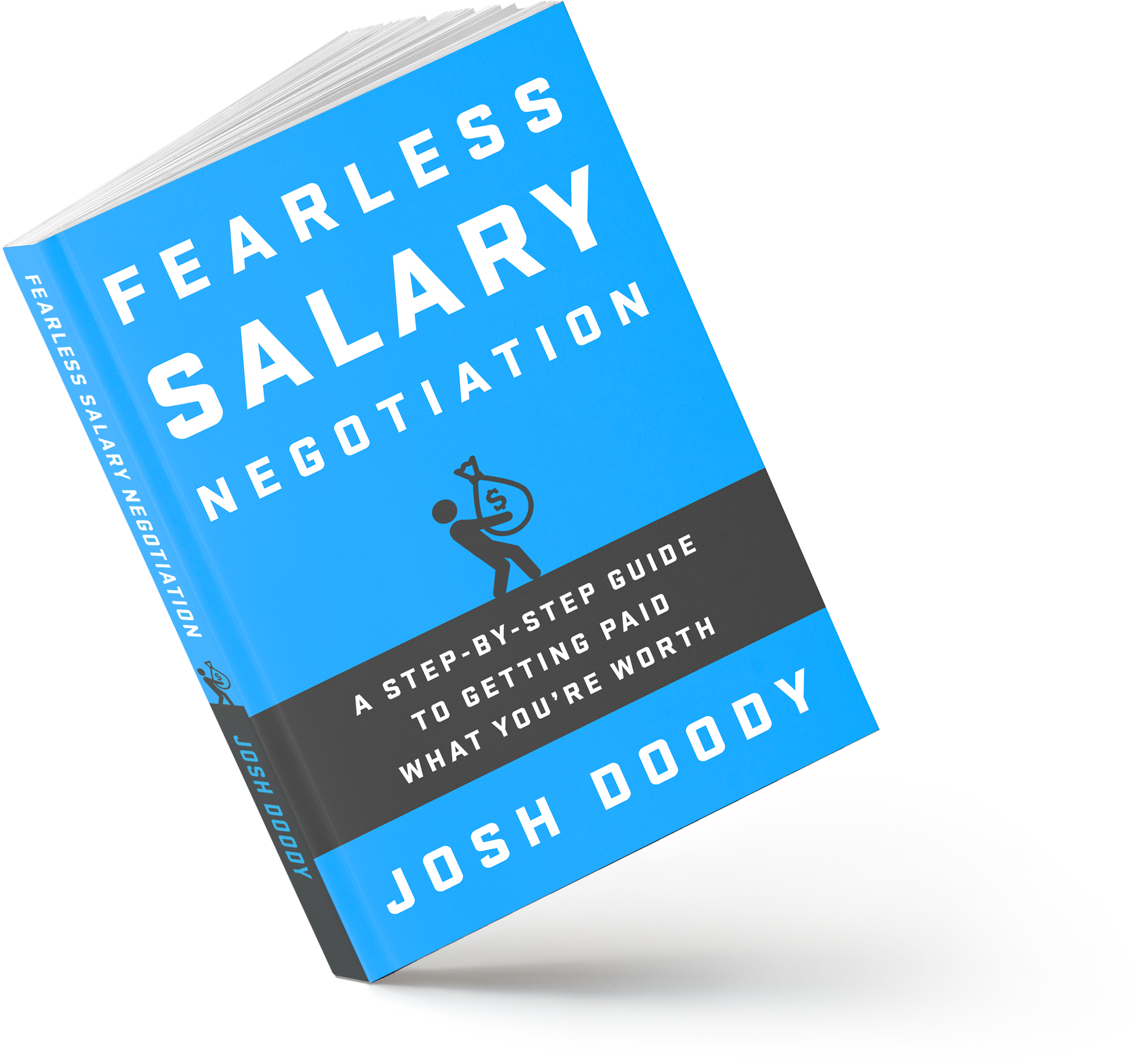Once you’ve finished interviewing, you’ll usually hear from the recruiter or hiring manager, asking if you’re free to chat about your interview process and next steps. This will usually be a pretty short conversation—10 minutes or so. They just want to make sure you’re still interested in the position, and they’re almost always going to take one last shot at getting you to disclose your desired salary.
This is your final opportunity before they make you an offer *to make the case that you should get as much money as possible. Odds are the company has a *range of salaries in mind that they may offer you, but they haven’t yet decided on the specific salary they will offer. By making a good case for yourself in the post-interview follow-up, you may be able to push their offer to the higher end of the range they have in mind.
You have two objectives for your post-interview follow-up call:
- Don’t give the first number in your salary negotiation.
- Make your final case that you will be a valuable asset to the company and that they should make as strong an offer as possible.
1. Don’t give the first number
The recruiter’s last attempt to elicit your desired salary will probably sound like this:
“Okay, I just need to talk to Finance and your hiring manager to see whether we’re ready to move forward with an offer. What sort of salary did you have in mind for this job? I just want to have something to run by Finance. And do you have any questions for me before we move forward?”
You may recognize the second part of The dreaded salary question in the recruiter’s dialogue above.
Here’s the dreaded salary question again, to refresh your memory:
“So where are you right now in terms of salary, and what are you looking for if you make this move?”
Maybe you got away without disclosing a desired salary the first time, but now you feel more pressure to play ball because you’re so close to an offer. Don’t give in! Instead, give an answer something like this:
“You know, I really don’t have a specific number in mind right now. I’ve learned a lot through the interview process, and I look forward to hearing what you suggest so I can consider it. As I mentioned earlier in this process, I want this move to be a big step forward for me in terms of both responsibility and compensation…”
2. Making your final case
Notice that I ended the answer with an ellipsis this time? That’s because the next thing you’ll say is:
“…because I know I can immediately contribute to help you address [this need] with [this positive attribute], and [this other need] with [this other positive attribute].”
Turn the dreaded salary question redux into an opportunity to make a case for yourself just before the recruiter goes to Finance to determine the salary they’ll offer you. This is why you spent time doing research and thinking about the company’s needs during the preparation phase of your interview process and again during your preparation for this negotiation. Now you can identify specific attribute-for-need combinations to describe how you will address specific needs and add value to the company.
The recruiter may cover other things too, but it’s a successful call for you as long as you meet your two objectives. The call will usually end with the recruiter saying they just need to reach out to Finance and your hiring manager to see if the company will move forward with an offer, and they’ll let you know when they’re ready to move forward.
The next thing you hear from them will likely be your initial offer.

